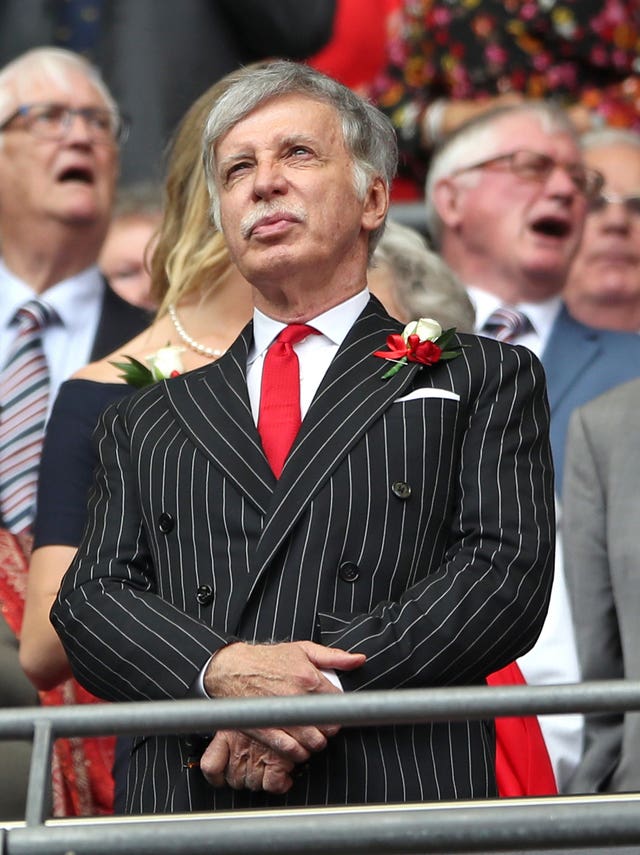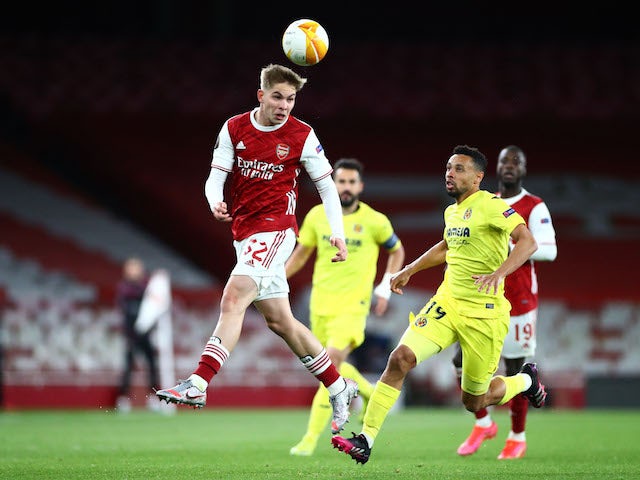Arsenal's hopes of Champions League football ended on Thursday when they exited the Europa League at the semi-final stage.
To compound the Gunners' misery, it was at the hands of former boss Unai Emery, who guided Villarreal through by a 2-1 score on aggregate following a goalless draw in London.
Here, the PA news agency takes a look at the current problems mounting at the Emirates Stadium.
No Europe?
Arsenal have played in a European competition in each of the last 24 seasons, but that run looks set to end. Winning the Europa League would have earned Mikel Arteta's side a spot in the Champions League but now they are left to rely on where they finish in the Premier League. As it stands, the Gunners will end the term in ninth and even if they could wipe out a five-point deficit to Liverpool in seventh, it may only earn a place in the Europa Conference League, a new third-tier tournament in Europe.
Super League fiasco
As a result of listening to you and the wider football community over recent days we are withdrawing from the proposed Super League.
We made a mistake, and we apologise for it.
— Arsenal (@Arsenal) April 20, 2021
Six of England's biggest clubs caused uproar on April 18 when they were revealed to be part of a new continental competition named the European Super League. Arsenal were one of the teams that were set to be involved in the breakaway division which would have rivalled the Champions League. Amid a huge backlash, the project came crashing down with the club's board writing an open letter to fans which stated "we made a mistake, and we apologise for it."
Ownership issues

The rapid collapse of the Super League failed to stop Arsenal supporters making their voices heard days later when Everton visited the Emirates on April 23. Hundreds of fans turned up pre-match to protest against owner Stan Kroenke, who has been involved in the club through his Kroenke Sports and Entertainment business since 2007. On the night of that protest, Spotify founder Daniel Ek revealed on Twitter he would be interested in buying the club. Ek has since joined forces with Arsenal greats Thierry Henry, Dennis Bergkamp and Patrick Viera, who have all backed his potential takeover bid.
Lack of identity
Supporters' disconnect with Kroenke has been bubbling for the best part of a decade, going back to when he bought a majority stake of the club in April 2011. During the following years, Arsenal lost ground on their once title rivals and more recently dropped out of the Champions League as long-serving manager Arsene Wenger stepped down in 2018. It has resulted in a general feeling that the Gunners have lost their identity, with the Super League a clear example of this while on the pitch performances have left a lot to be desired.
Investment required?
💬 "We are all devastated. The players are really down. We wanted to deliver something for this football club."
📺 The boss reacts to our #UEL elimination 👇
— Arsenal (@Arsenal) May 6, 2021
A big gripe against the Kroenke ownership is a lack of investment. Early into his tenure, key men Cesc Fabregas and Robin Van Persie were allowed to leave and during the past few years the club's recruitment has again been questionable. Big-money signings Nicolas Pepe and Thomas Partey have so far failed to deliver, while their rivals in Manchester and others like Chelsea, Liverpool and Leicester have moved way ahead of the Gunners due to their own smart business in the transfer market. This season rookie boss Arteta has largely relied on youngsters, with his playing group featuring a number of experienced players potentially past their best.









